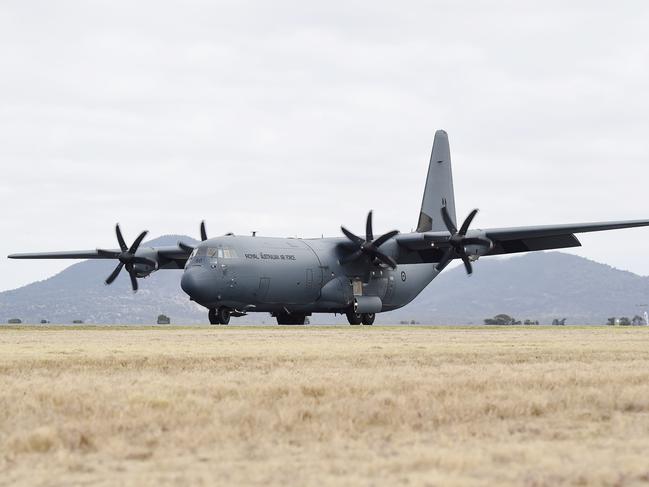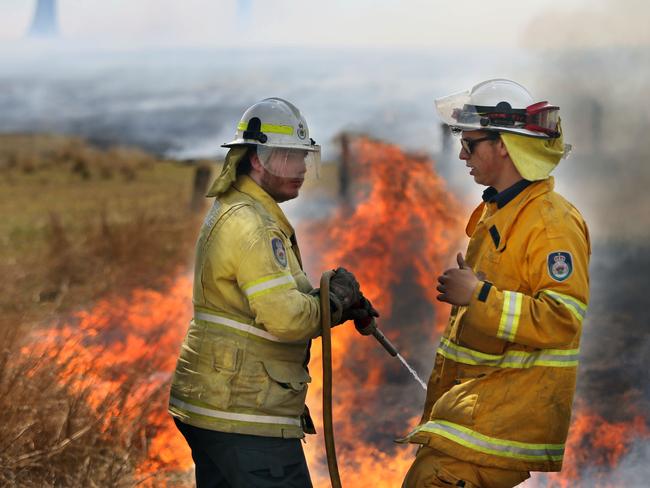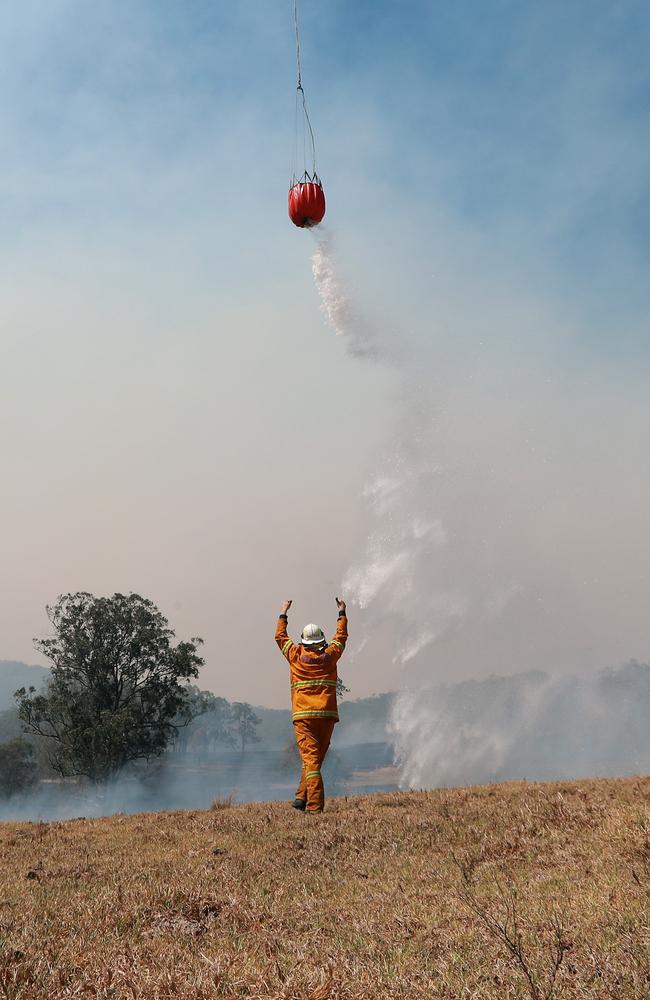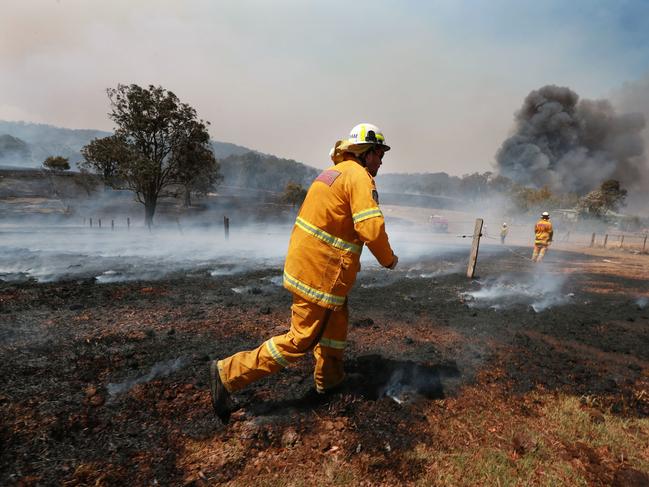NSW and Queensland bushfires: Defence on standby to boost troops amid crisis
Navy helicopters usually used to hunt submarines have been deployed to identify bushfire hotspots as Defence reveals an extraordinary plan for reservists to join regular troops.
National
Don't miss out on the headlines from National. Followed categories will be added to My News.
Navy helicopters usually used to hunt submarines have been deployed to identify fire hotspots around the country.
The move came today as Defence drafted plans for an extraordinary deployment of Army Reservists to join regular troops committed to the fire fight.
In what has now become the biggest ever military call-up for a civil emergency of its kind in Australia, squadrons of Army, Navy and RAAF aircraft were working through the day and night on operations as tasked by Emergency Management Australia.

But critically, Defence is also now actively scoping a possible full “call out” of ADF Reservists - under law only ever made “in support of significant national emergencies if required to supplement ADF regular personnel”.

Reservist volunteers have been used in natural disaster response before but should the fire threat increase, Defence Minister Linda Reynolds told parliament a never-before used order by the Governor-General could be given for a mandatory call to arms.
Senator Reynolds said if requested by civil authorities, Defence would provide reservists from all three services firstly under voluntary arrangements.
One hundred and twenty personnel are currently available for emergencies in Brisbane and 130 in Sydney are already on standby for transport and logistics.

But she said given the unprecedented fire threat, she was looking at plans to combat severe and protracted fire threats beyond voluntary reservists with a compulsory call out under Section 28 Defence Act.
“This mechanism has never been used defence is working through every aspect at the moment od such a call out to ensure we are prepared if required.”
MORE NEWS
Those who died in fire ‘likely voted Greens’: Joyce
How Aussies can help as bushfires rage on
Climate change link to fires disgusts me, says Deputy PM
The move to ensure arrangements are in place and the authority can be given speaks volumes of the grave nature and fears over the potential of fires along the east coast states particularly.
Two Royal Australian Navy Seahawk helicopters have been tasked with night flights out of Sydney and Coffs Harbour to fire spot with the aid of Rural Fire Service (RFS) trained observers while two hi-tech multi-role MRH-90 Taipans and two Army Blackhawks provided vital movements of firefighting equipment.

The helicopters were also on permanent 24-hour standby for civilian rescue missions.
RAAF Large Aerial Tankers were being used for refuelling and water resupply with a C-130J Hercules transporting more fire equipment and personnel from Essendon and Mildura to Armidale.
MORE NEWS
Shocking images show NSW’s fire devastation
Smoke haze delivers major health risks in QLD
In pictures: Bushfire disaster sweeps Queensland
On Monday other Hercules were moving equipment from Adelaide and Hobart.
An aviation liaison team has now had to be embedded with the NSW RFS State Operations Centre to co-ordinate air support and tasking. Other liaison teams are embedded in both the Queensland and NSW State Disaster Co-ordination Centre.
On the ground, Army engineering support from Kokoda Barracks in Canungra, where Queensland Fire and Emergency Services are also now stationed, and Brisbane’s 7th Brigade were creating firebreaks about Beechmont.
In Singleton Army Barracks, up to 180 Victorian Country Fire Authority fire fighters and a convoy of trucks are on standby for deployment with a second Army base in Lismore ready to cater for visiting Victorian fire fighting personnel.
Originally published as NSW and Queensland bushfires: Defence on standby to boost troops amid crisis


